 2 citations,
September 2023 in “JMIR. Journal of medical internet research/Journal of medical internet research”
2 citations,
September 2023 in “JMIR. Journal of medical internet research/Journal of medical internet research” Machine learning can predict symptoms and quality of life in chronic skin disease patients using smartphone app data, and shows that app use varies with patient characteristics.

The method creates realistic, anonymous acne face images for research, achieving 97.6% accuracy in classification.
[object Object] 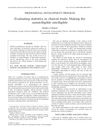 October 2008 in “Australasian Journal of Dermatology”
October 2008 in “Australasian Journal of Dermatology” Medical practitioners need to understand basic statistics to properly evaluate clinical trials and avoid unethical designs.
 38 citations,
February 2006 in “British Journal of Clinical Pharmacology”
38 citations,
February 2006 in “British Journal of Clinical Pharmacology” The study found that combining different databases gives a better estimate of drug side effects in hospitals.
 December 2022 in “Research Square (Research Square)”
December 2022 in “Research Square (Research Square)” The document concludes that an automatic system using deep learning can help diagnose skin disorders, but challenges and opportunities in this area remain.
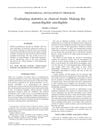 5 citations,
October 2008 in “Australasian Journal of Dermatology”
5 citations,
October 2008 in “Australasian Journal of Dermatology” Doctors need to understand statistics to properly evaluate clinical trials for patient care.
 2 citations,
July 2022 in “Dermatology practical & conceptual”
2 citations,
July 2022 in “Dermatology practical & conceptual” Iron deficiency anemia may contribute to hair loss in women with Telogen effluvium.
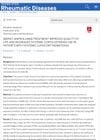
Anifrolumab improves quality of life and reduces steroid use in lupus patients.
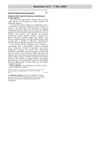 November 2009 in “Reactions Weekly”
November 2009 in “Reactions Weekly” Two women lost hair after mesotherapy for hair loss, with one having permanent and the other temporary hair loss.
 29 citations,
April 2019 in “BMJ. British medical journal”
29 citations,
April 2019 in “BMJ. British medical journal” Men taking dutasteride or finasteride have a slightly higher risk of developing type 2 diabetes.
 8 citations,
March 2019 in “Drugs - Real World Outcomes”
8 citations,
March 2019 in “Drugs - Real World Outcomes” Healthcare claims databases can help monitor drug safety, but may report adverse events differently than direct surveillance.
 January 2019 in “Medicine Science | International Medical Journal”
January 2019 in “Medicine Science | International Medical Journal” Children with different rheumatologic diseases have specific skin symptoms that can help with diagnosis.
 1 citations,
January 2023 in “IEEE access”
1 citations,
January 2023 in “IEEE access” Deep learning helps detect skin conditions and is advancing dermatology diagnosis and treatment.
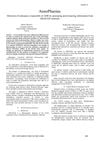
AnnoPharma effectively identifies substances causing adverse drug reactions in medical abstracts.
 27 citations,
December 2015 in “Mayo Clinic Proceedings”
27 citations,
December 2015 in “Mayo Clinic Proceedings” The document concludes that lifestyle changes and medical treatments can significantly reduce symptoms of Hidradenitis Suppurativa, a chronic skin condition.
 July 2023 in “Australasian Journal of Dermatology”
July 2023 in “Australasian Journal of Dermatology” The analysis found that alopecia areata, a hair loss condition, is not very common in Australia, affecting about 0.13% of people, with new cases most often seen in males aged 19 to 34 years.
 6 citations,
June 2021 in “Journal of health psychology”
6 citations,
June 2021 in “Journal of health psychology” The article suggests that the view of male baldness as a medical issue is influenced by commercial bias and calls for more unbiased research.
 13 citations,
May 2020 in “Journal of Plastic Reconstructive and Aesthetic Surgery”
13 citations,
May 2020 in “Journal of Plastic Reconstructive and Aesthetic Surgery” Botulinum toxin's effectiveness for treating scalp alopecia is not well-supported due to insufficient data.
 41 citations,
June 2018 in “Medicine Health Care and Philosophy”
41 citations,
June 2018 in “Medicine Health Care and Philosophy” The article suggests using four questions to tell apart necessary medicalization from excessive medicalization, focusing on problem significance, social expectations, medical understanding, and effective resolution.
 October 2023 in “Frontiers in medicine”
October 2023 in “Frontiers in medicine” Comprehensive screening for infections is crucial before starting JAK inhibitors in alopecia areata patients.
 13 citations,
January 2018 in “BioMed Research International”
13 citations,
January 2018 in “BioMed Research International” Scalp involvement is common in pemphigus and can lead to hair loss, with the severity of scalp lesions linked to overall disease severity.
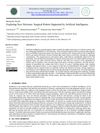
AI-assisted surgical robots improve surgery precision and safety.
 July 2023 in “Nasza Dermatologia Online”
July 2023 in “Nasza Dermatologia Online” More research is needed on CCCA in children, especially Black and Asian adolescents.
 March 2024 in “Dermatology and therapy”
March 2024 in “Dermatology and therapy” AA patients with comorbid conditions face more severe hair loss and need specific treatments.
 March 2017 in “Fundamental & Clinical Pharmacology”
March 2017 in “Fundamental & Clinical Pharmacology” The model and estimator can predict drug exposure in kidney transplant patients well.
[object Object]  8 citations,
August 2021 in “Computational and Mathematical Methods in Medicine”
8 citations,
August 2021 in “Computational and Mathematical Methods in Medicine” Machine learning can accurately identify Alopecia Areata, aiding in early detection and treatment of this hair loss condition.
4 citations,
January 2018 in “Journal of dermatology & dermatologic surgery” There is no gold standard treatment for hidradenitis suppurativa due to insufficient evidence.
 1 citations,
March 2024 in “Skin research and technology”
1 citations,
March 2024 in “Skin research and technology” A new AI model diagnoses hair and scalp disorders with 92% accuracy, better than previous models.
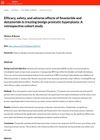 December 2024 in “Zanco Journal of Medical Sciences”
December 2024 in “Zanco Journal of Medical Sciences” Finasteride and dutasteride are equally effective and safe for treating BPH.
 January 2024 in “Polski Merkuriusz Lekarski”
January 2024 in “Polski Merkuriusz Lekarski” Pica disorder in central Iraq is mainly found in females and is linked to low iron levels; treatment with iron improves most patients.




























